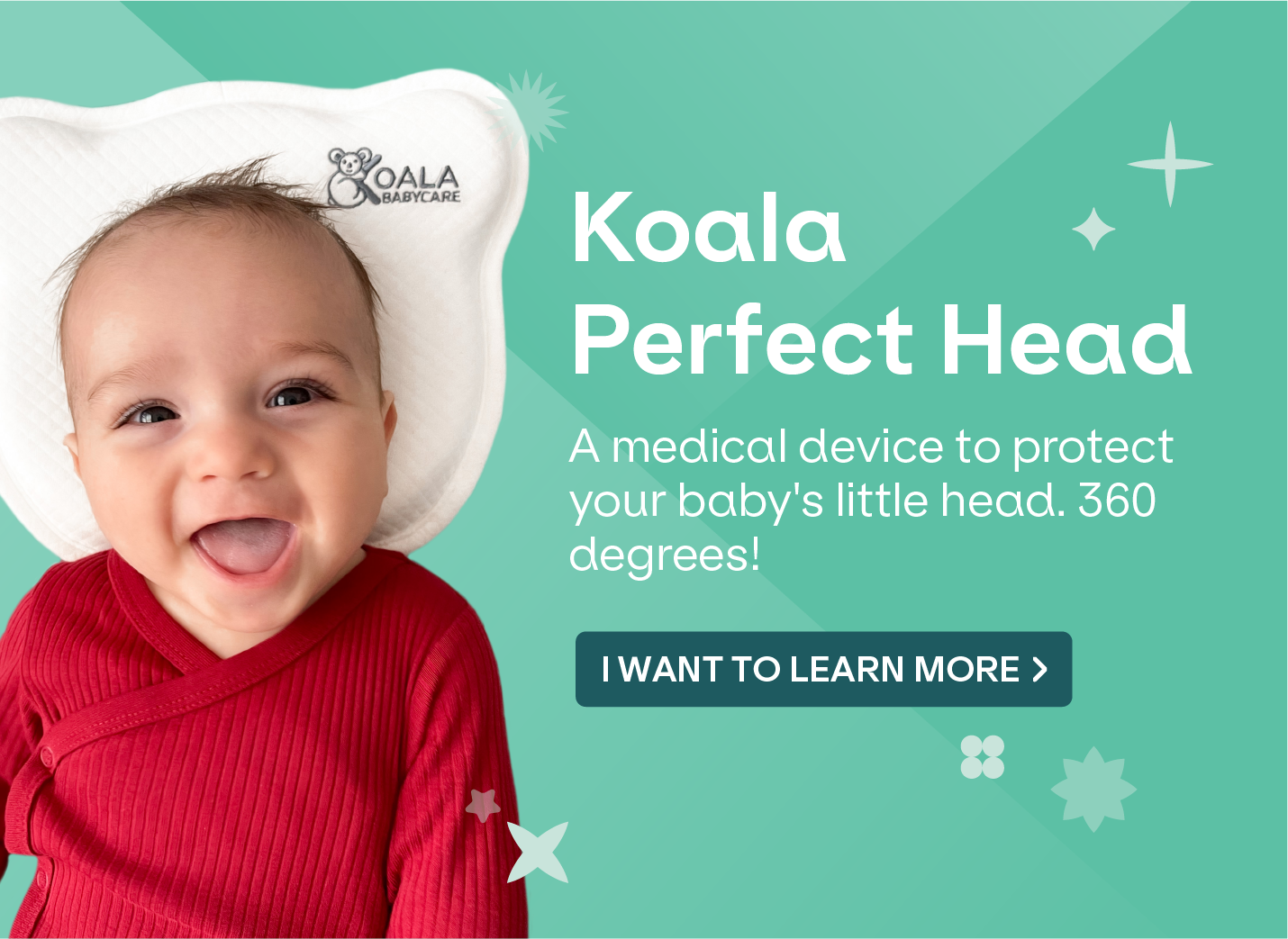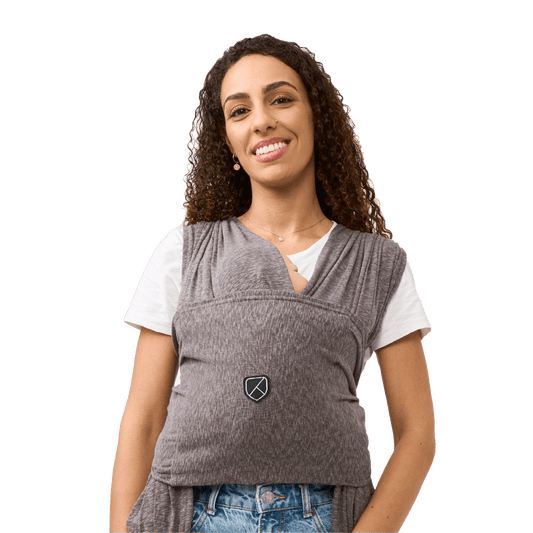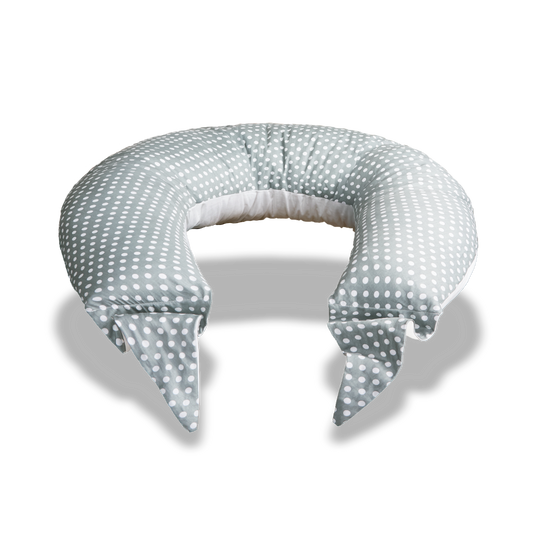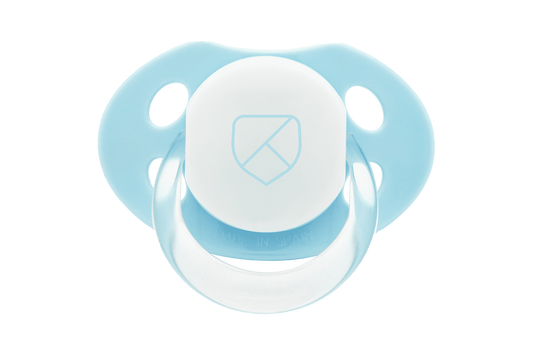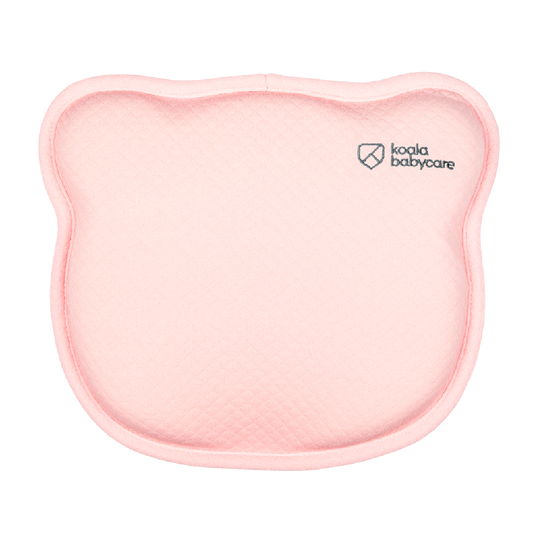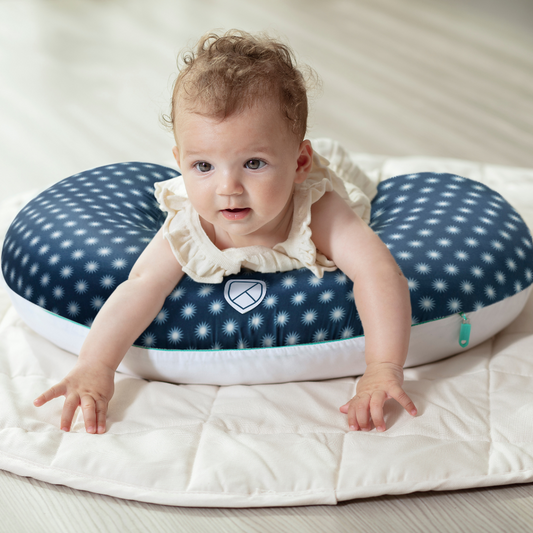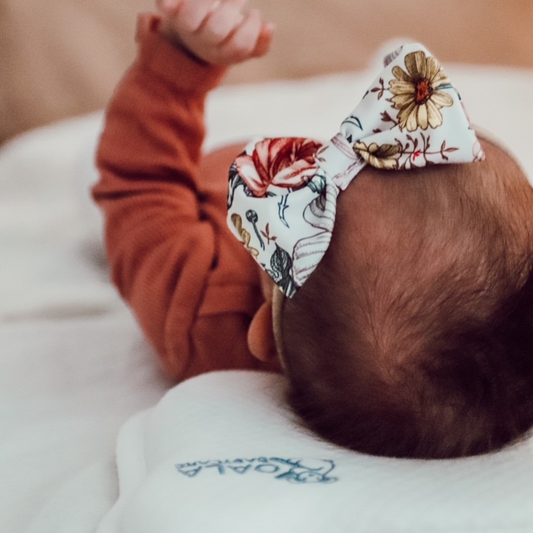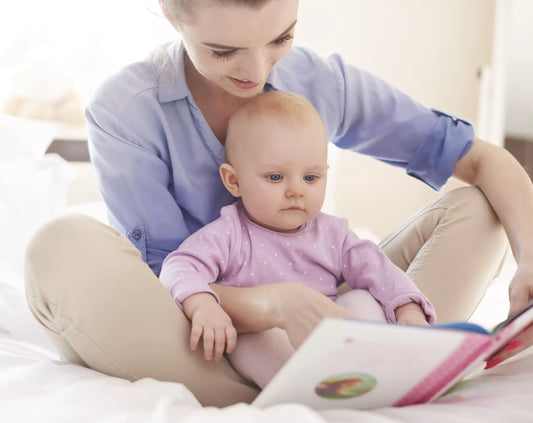A short guide on playing with your baby during their first weeks of life, to promote their exploration of the world around them and encourage them to develop an awareness of their body. Read on and discover the best play time ideas for babies from 0 to 3 months.
Children learn through play
“A child learns through play” is not just an old saying. Children develop new skills through play: body awareness and movement, cause & effect, creativity, and intelligence.
This is true starting right from their very first weeks of life. When they’re not sleeping or eating, they’re playing. During the first few months, a newborn does not need any special toys to entertain them, on the contrary, they only need a few small things: you, a rattle, a play gym.
They receive stimulation from everything around them, everything is completely new to a newborn. Their own movement and discovering what they can do with their body proves to be the most important and interesting activity for young babies during those initial months.
That’s why it’s good to stimulate them with simple activities right from birth. Which ones are most age-appropriate? We take a look in the following paragraphs.
How do I play with my newborn during the first few weeks?
To understand how your baby feels during the first few weeks after their birth, you have to think about where they have just come from. When inside mummy’s tummy, in a small safe space, every experience was filtered by the mum herself.
That’s why newborns need time to settle into their new world, to familiarise themselves with their new environment and experience everything the world has to offer at their own pace. Everything around them is a source of stimulation.
You don't have to overly stimulate them straight away, as they already have plenty of stimulation. If your baby looks around curiously, isn’t crying and is calm, let them be, there’s no need to intervene.
There are, however, a few play time activities you can do together to help your little one adjust to their new surroundings.
Start familiarising your baby with a play mat
Just by lying on a play mat, without doing anything special, helps newborns become aware of their own body and strengthens their back and shoulders. To protect their little head, use Koala Perfect Head Maxi baby pillow.
It's ideal to prevent your baby’s head from developing Positional Plagiocephaly (Flat Head Syndrome) by being in direct contact with hard surfaces. This applies not only to play mats but also to cots, bouncers, and carrycots. Yes, their little head is really that delicate!
It's never too early for music
Music is good for babies starting from when inside the womb. It has been proven to develop serotonin in babies, soothing little ones and increasing their sense of calm.
What is the best song for newborns? It’s called The Happy Song!
It’s the result of extensive research by a team of experts who tested different noises, sounds and melodies on newborns. It’s composed by Grammy Award winner Imogen Heap.
How to play with a two month old baby
When your baby turns two months old, you can start to introduce toys which will help develop grasping and holding abilities. You can also offer them toys which make a noise when squeezed or shaken, such as rattles in order to promote their understanding of cause & effect.
You’ll discover that your baby will spend hours gazing at moving objects, such as little hanging toys from their musical mobile over their cot or on their play mat play bar.
Here are some other ideas that will help with your infant’s motor and cognitive development.
First gymnastic exercises
Here’s what you can do to help your little one’s awareness of their own body and movements:
- When your baby is on the mat, take hold of their little hands and gently move them left and right and then upwards (very carefully of course).
- You can do the same with their little feet.
- Gently help them turn over onto their tummy, by placing one hand on their back and one on their bottom.
This will assist your infant in memorising each movement, and they will find them easier to repeat independently over the coming months.
Montessori Gym
A small baby gym is great for helping babies move independently. Your little one will try to reach towards the small hanging toys, each made of different textures and shapes.
At the beginning they won’t be able to grasp them, but once they’ve understood how, they will try to bring them towards their mouth and in doing so will also strengthen their neck and back muscles.
Other toys which are good for newborns are those which make noises, such as a bell sound, these are ideal for familiarising babies with movement-noise correlation.
How to play with a three month old baby
At three months old, a baby is able to recognise people's voices and faces and is more responsive to stimulation from mum and dad. This is when we can begin introducing other means of stimulation, such as different colours, shapes and sounds to promote sensory abilities.
You can develop their motor and coordination skills by encouraging your baby to grasp toys close to them. Don't put the toy directly in their hand, you’ll be taking away all the fun and sense of achievement they feel when they are able to grab it for themselves!
Each time an infant tries to grab an object, they are practising very important problem-solving skills, which is why it is very important you encourage them to do it on their own.
Tummy Time
It's time for Tummy Time: placing your baby lying on their stomach while awake (under close supervision, of course). This helps little ones with muscle development as, by learning to lift their head, they strengthen both back and neck muscles.
A simple idea to make Tummy Time more fun is to place a mirror in front of your baby and let them play with their reflection. Babies will try to pull themselves up to look in the mirror.
Babies find it difficult to lift their head, so it’s a good idea to keep tummy time short. Ideally, just for a few minutes every day.
From four months old onwards, you can use your Koala Hugs pregnancy and breastfeeding pillow to raise your baby’s upper body by resting their arms and chest on the pillow. This will strengthen your infant’s muscles even more.
Sing songs
Babies love hearing us sing, especially when the melody is familiar to them. Choose fun action songs, so that your baby enjoys both listening and watching.
Sing the same song over several times each day until your infant loses interest. Then you can add on another one and so on.
Singing or reciting nursery rhymes promotes language development and is an opportunity to promote movement and rhythm through sensory motor stimulation.
You’ll be amazed at the speed of progress your child makes through play and interaction with mum and dad. During these early months, each day brings a new surprise!
As your baby grows, you can stimulate their motor and cognitive skills with the most age-appropriate games and activities. Want to learn more about which ones are best? Read our guide to play ideas and activities for 0 to 18 months.
The information contained on this Site is purely of an informative nature and does not replace any diagnosis or treatment advice received from a doctor. We recommend that you always seek advice from your family doctor and / or specialists.



